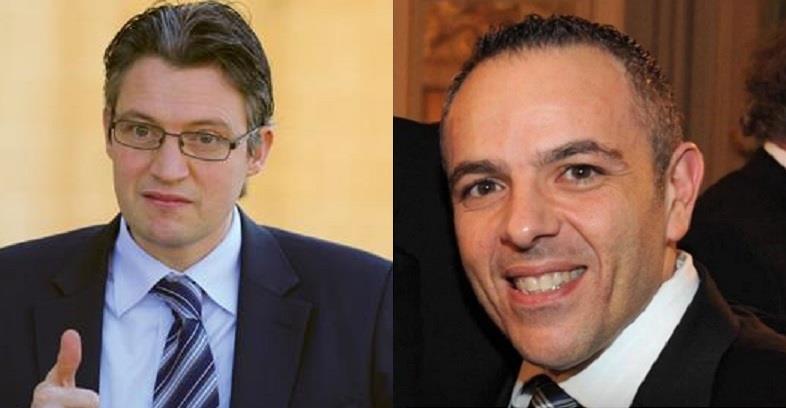While Malta has been left to digest the claims that a former Financial Intelligence Analysis Unit employee was prevented from carrying out investigations, the European Parliament’s PANA committee led by Werner Langen (above) has come out with a set of recommendations for FIAU’s across member states.
The Sunday Times of Malta quoted former FIAU employee Jonathan Ferris, known for his zeal and enthusiasm when carrying out investigations, as saying that reports on the Prime Minister’s chief of staff Keith Schembri and Tourism Minister Konrad Mizzi’s suspicion into money laundering and kickbacks were never registered by the police.
He also claimed that he was silenced when trying to carry out investigations into, and he was eventually fired in order to keep him as far away from investigations into the government’s dealings as possible.
Both the police and the FIAU gave brief, vague and nondescript denials of the claims made by Ferris.
The police simply said that the FIAU reports were registered as per the norm, but did not give any details such as the reference number attached whenever a report is filed, or any other details that would have backed up its claim.

The FIAU said it always acted in a correct manner, in accordance with the law. It also added that employees have always been allowed to carry out their work freely.
As part of the PANA committee’s functions into investigating possible money laundering, tax evasion and tax avoidance, it has drawn up a draft report and recommendations to improve loopholes and shortcomings in the area.
Some of the recommendations were covered by The Malta Independent on 10 July when the PANA committee held a debate on the matter, however an updated list has now been shared by Sven Giegold, a Greens MEP and member of PANA committee.
A section has been dedicated to the strengthening of each EU member state’s Financial Intelligence Units, to ensure that crimes of money laundering, tax avoidance and tax evasion can be tackled using a more holistic approach, with the help from FIU’s across the EU.
Of particular interest is its insistence that “the appointment for managerial positions in FIUs need to be neutral.”
It stressed that “the need for common rules on the independency of its institutions in charge of enforcing rules as regards tax fraud and money laundering as well as the need for full independence of law enforcement bodies in the follow-up of FIU reports”.
The recommendations however do not delve into the executive structure of FIUs. For instance, arguments have been made in the wake of the FIAU leaks into reports of suspected criminal activity by the OPM chief of staff Keith Schembri, that the entity’s board structure allows for indirect conflicts of interest.
Currently the FIAU board of governors is made up of the Attorney General, who is also legal counsel to the Prime Minister, Gozo Minister Justyne Caruana’s husband, Silvio Valletta who is the police representative, along with representatives of the Malta Financial Services Authority and the Central Bank.
The FIAU’s website outlines how board members are appointed:
“Members are appointed by the Minister responsible for finance, with one person being selected from each of four panels nominated by the Attorney General, the Governor of the CBM, the Chairman of the MFSA and the Commissioner of Police. Both the Chairman and Deputy Chairman are appointed from among Board members by the Prime Minister after consultation with the Minister responsible for finance.”
The PANA committee draft recommendations into the FIAU also outline the belief in harmonising “the status and functioning of European FIUs,” adding that “exchange of information would be strengthened”.
It also suggests, on the basis on higher efficiency, that all “EU FIAUs should have unlimited access to information from obliged entities as this would allow all FIUs to request information from reporting entities on behalf of foreign FIUs”.
It also stressed the need for enhanced communication between different competent authorities at national level but more importantly between FIUs in different EU member states.
The report also “calls on the Commission to set up an EU benchmarking system as a tool to standardise the information to be collected and exchanged and to enhance cooperation between FUIs”.
It also called for an EU FIU in order to ensure that an effective and coordinated system of exchange of information as well as a centralised database.